Dozens of US lawmakers urge Biden to raise rights issues with Modi -letter
Story by By Patricia Zengerle

U.S. President Joe Biden holds videoconference with India's Prime Minister Narendra Modi from the White House in Washington© Thomson Reuters
By Patricia Zengerle
WASHINGTON (Reuters) -Dozens of his fellow Democrats urged U.S. President Joe Biden on Tuesday to raise human rights issues with Indian Prime Minister Narendra Modi during his visit to Washington this week, according to a letter sent to Biden.
Modi left for Washington on Tuesday for a visit projected as a milestone in ties between the two countries.
"We do not endorse any particular Indian leader or political party — that is the decision of the people of India — but we do stand in support of the important principles that should be a core part of American foreign policy," said the letter, led by Senator Chris Van Hollen and Representative Pramila Jayapal.
A total of 75 Democratic members of Congress - 18 senators and 57 members of the House of Representatives - signed the letter, sent to the White House on Tuesday and first reported by Reuters.
"And we ask that, during your meeting with Prime Minister Modi, you discuss the full range of issues important to a successful, strong, and long-term relationship between our two great countries," the letter said.

U.S. President Joe Biden holds videoconference with India's Prime Minister Narendra Modi from the White House in Washington© Thomson Reuters
By Patricia Zengerle
WASHINGTON (Reuters) -Dozens of his fellow Democrats urged U.S. President Joe Biden on Tuesday to raise human rights issues with Indian Prime Minister Narendra Modi during his visit to Washington this week, according to a letter sent to Biden.
Modi left for Washington on Tuesday for a visit projected as a milestone in ties between the two countries.
"We do not endorse any particular Indian leader or political party — that is the decision of the people of India — but we do stand in support of the important principles that should be a core part of American foreign policy," said the letter, led by Senator Chris Van Hollen and Representative Pramila Jayapal.
A total of 75 Democratic members of Congress - 18 senators and 57 members of the House of Representatives - signed the letter, sent to the White House on Tuesday and first reported by Reuters.
"And we ask that, during your meeting with Prime Minister Modi, you discuss the full range of issues important to a successful, strong, and long-term relationship between our two great countries," the letter said.
Related video: Modi-Biden Summit 2023 | Indian Diaspora Holds Unity March Ahead PM Modi's Visit | World News (Times Now)Duration 3:02
Modi has been to the United States five times since becoming prime minister in 2014, but the trip will be his first with the full diplomatic status of a state visit, despite concerns over what is seen as a deteriorating human rights situation under his Hindu nationalist Bharatiya Janata Party.
Washington hopes for closer ties with the world's largest democracy, which it sees as a counterweight to China, but rights advocates worry that geopolitics will overshadow human rights issues. Several U.S. rights groups plan protests during Modi's visit.
The State Department's annual report on human rights practices released in March listed "significant human rights issues" and abuses in India.
'FRIENDS CAN AND SHOULD DISCUSS THEIR DIFFERENCES'
Modi will address a joint meeting of the House and Senate on Thursday, one of the highest honors Washington affords to foreign dignitaries.
"A series of independent, credible reports reflect troubling signs in India toward the shrinking of political space, the rise of religious intolerance, the targeting of civil society organizations and journalists, and growing restrictions on press freedoms and internet access," the lawmakers said in the letter.
They said they joined Biden in welcoming Modi to the United States, and want a "close and warm relationship" between the people of the two countries, saying that friendship should be based on shared values and "friends can and should discuss their differences in an honest and forthright way."
"That is why we respectfully request that — in addition to the many areas of shared interests between India and the U.S. — you also raise directly with Prime Minister Modi areas of concern," the letter said.
The White House did not immediately respond to a request for comment on Tuesday. But when asked last month about human rights concerns in India, White House Press Secretary Karine Jean-Pierre told reporters Biden believes: "This is an important relationship that we need to continue and build on as it relates to human rights."
(Reporting by Patricia Zengerle; Editing by Don Durfee and Jonathan Oatis)
India’s Modi creates conundrum for US political leaders
Story by Laura Kelly •
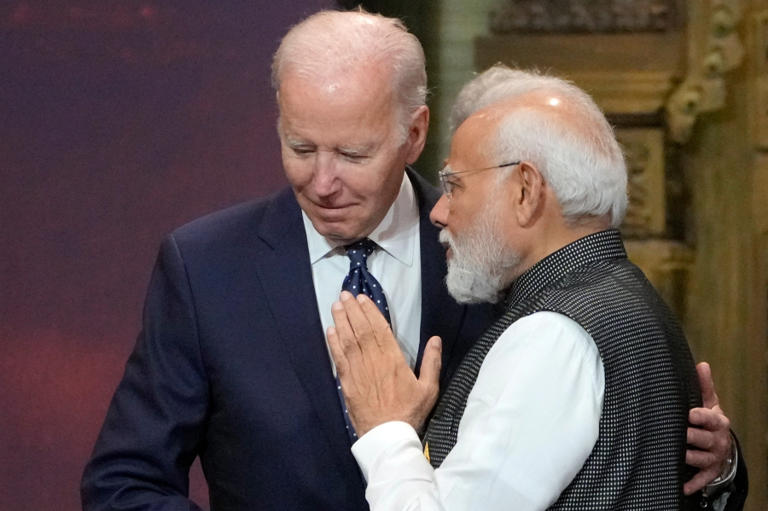
The Hill
Washington will welcome Indian Prime Minister Narendra Modi with open arms Thursday, highlighting a bipartisan effort to move past the many differences in the U.S.-India relationship and focus on their shared problem: China.
The Indian premier’s trip comes amid a push for defense and tech deals between the two countries, and as some lawmakers and human rights groups voice criticism of the trip, viewing Modi and his political party as responsible for violence in India directed toward the country’s Muslim minority.
Modi’s invitation to deliver an address to a joint session of Congress — which will be his second such speech — has raised alarm for activists and groups critical of his administration’s push toward silencing dissenters in India.
Rep. Rashida Tlaib (D-Mich.) tweeted that she will boycott the speech, and Rep. Ilhan Omar (D-Minn.) announced she’ll hold a press conference with human rights groups directly after the prime minister’s address. The lawmakers are the only two Muslim women elected to Congress.
The Biden administration has signaled it views the visit as an important step in strengthening U.S.-India ties, fanning worries among critics that the White House is willing to soften criticisms in exchange for advancing a powerful economic and military relationship.
“My hope is that this visit basically consecrates the U.S. and India relationship as the most important bilateral relationship for the United States on the global stage,” Kurt Campbell, the National Security Council coordinator for the Indo-Pacific said during an event with the Hudson Institute earlier this month.
“I think the president is less about outward and ostentatious proselytizing about democracy and human rights and more about trying to let our model and our attempt to deal with our own challenges be a kind of model for how other countries might want to deal with their own challenges,” he added.
India, a democracy with a population of more than 1.4 billion and a reputation as a hub for innovation, is a priority business market that the Biden administration feels can serve as an alternative to China.
Though the U.S. and India have different priorities when it comes to China — New Delhi is more concerned about Beijing’s military buildup on its border than an invasion of Taiwan — U.S. lawmakers see a strong partner.
“One senior Indian official — I asked him what India’s greatest challenges were, he said, ‘No. 1 was China, No. 2 was China, No. 3 was China,’” Sen. Mark Warner (D-Va.), co-chairman of the Senate India Caucus and chairman of the Senate Select Committee on Intelligence, said on a panel discussion last week.
The scope and scale of economic and security deals that could come to fruition from Modi’s visit are being watched closely.
“I want deals to go through,” Atul Keshap, president of the United States-India Business Council at the U.S. Chamber of Commerce, said in an interview with The Hill.
“The defense deals, the energy deals, the digital economy deals, the e-commerce, supply chain, manufacturing deals, semiconductor deals — business-to-business is part of the glue of this relationship. … Deal flow is critical for me, and I’m looking to see what the tally sheet shows after the State visit.”
One such priority agreement is the Biden administration’s signoff for General Electric to partner with Indian defense manufacturing to produce next-generation fighter jet engines, a lucrative deal that also requires the U.S. to share sensitive military technology.
The agreement is part of a larger trend wherein the U.S. has engaged India in critical security partnerships in a counter to China, such as the “Quad” grouping of the U.S., India, Australia and Japan, and the I2U2 — a separate alliance including Israel and the United Arab Emirates.
But while Washington and Delhi have shored up military partnerships and set the stage for deepening economic ties, human rights groups and lawmakers are raising alarm that the president is abandoning his promise to put respect for human rights at the center of his foreign policy.
Sen. Chris Van Hollen (D-Md.) and Rep. Pramila Jayapal (D-Wash.), along with more than 70 of their colleagues, sent a letter to Biden on Tuesday urging him to raise with Modi the need to protect human rights and democratic values in India.
Groups have criticized the White House for rolling out the red carpet for Modi over weakening press freedoms and silencing dissenters in India and stressed the Biden administration is “whitewashing” his record.
“America knows and the world knows what Modi is, who Modi is, in fact, he was not even allowed to come to the United States for nine years until he became prime minister,” said Rasheed Ahmed, executive director of the Indian American Muslim Council, referring to the U.S. in 2005 banning Modi’s entry due to anti-Muslim violence that took place in Gujarat state when he was a governor.
“So it’s not that the U.S. administration does not know what he has done or what he is responsible for. But in spite of that, the Biden administration providing him this kind of platform is a real problem here,” he said, adding that military and strategic economic ties should not be a free pass for the Indian prime minister “to do whatever he wants to do.”
“If the Biden administration is interested in India as a strategic partner, as a bulwark for China, they need to make sure that it is first of all, it is stable, and second, it is a democracy,” Ahmed said.
There’s also the issue of New Delhi’s close ties with Moscow — a relationship that stretches back to the Soviet Union and has left Russia as a key arms supplier to India.
India has fiercely guarded its position of nonalignment and neutrality since the early days of Russia’s full-scale invasion of Ukraine, despite pressure from the Biden administration to turn away from Moscow.
That tension could play out when India hosts the G20 summit in September, where Russian President Vladimir Putin faces few barriers in attendance. New Delhi is not a member of the International Criminal Court (ICC) and not obligated to act on an ICC arrest warrant against Putin for war crimes committed in Ukraine.
Sen. John Cornyn (R-Texas) called it “a little bit disappointing, when Russia invaded Ukraine, India took a pass,” but pointed to the need to wean New Delhi off of dependency on weapons from the Kremlin.
“They’re coming our way … and it can’t happen fast enough.”
Story by Laura Kelly •

The Hill
Washington will welcome Indian Prime Minister Narendra Modi with open arms Thursday, highlighting a bipartisan effort to move past the many differences in the U.S.-India relationship and focus on their shared problem: China.
The Indian premier’s trip comes amid a push for defense and tech deals between the two countries, and as some lawmakers and human rights groups voice criticism of the trip, viewing Modi and his political party as responsible for violence in India directed toward the country’s Muslim minority.
Modi’s invitation to deliver an address to a joint session of Congress — which will be his second such speech — has raised alarm for activists and groups critical of his administration’s push toward silencing dissenters in India.
Rep. Rashida Tlaib (D-Mich.) tweeted that she will boycott the speech, and Rep. Ilhan Omar (D-Minn.) announced she’ll hold a press conference with human rights groups directly after the prime minister’s address. The lawmakers are the only two Muslim women elected to Congress.
The Biden administration has signaled it views the visit as an important step in strengthening U.S.-India ties, fanning worries among critics that the White House is willing to soften criticisms in exchange for advancing a powerful economic and military relationship.
“My hope is that this visit basically consecrates the U.S. and India relationship as the most important bilateral relationship for the United States on the global stage,” Kurt Campbell, the National Security Council coordinator for the Indo-Pacific said during an event with the Hudson Institute earlier this month.
“I think the president is less about outward and ostentatious proselytizing about democracy and human rights and more about trying to let our model and our attempt to deal with our own challenges be a kind of model for how other countries might want to deal with their own challenges,” he added.
India, a democracy with a population of more than 1.4 billion and a reputation as a hub for innovation, is a priority business market that the Biden administration feels can serve as an alternative to China.
Though the U.S. and India have different priorities when it comes to China — New Delhi is more concerned about Beijing’s military buildup on its border than an invasion of Taiwan — U.S. lawmakers see a strong partner.
“One senior Indian official — I asked him what India’s greatest challenges were, he said, ‘No. 1 was China, No. 2 was China, No. 3 was China,’” Sen. Mark Warner (D-Va.), co-chairman of the Senate India Caucus and chairman of the Senate Select Committee on Intelligence, said on a panel discussion last week.
The scope and scale of economic and security deals that could come to fruition from Modi’s visit are being watched closely.
PM Modi's US visit: Are India US ties the 'real deal'? (India Today)
Duration 50:03 View on Watch
“I want deals to go through,” Atul Keshap, president of the United States-India Business Council at the U.S. Chamber of Commerce, said in an interview with The Hill.
“The defense deals, the energy deals, the digital economy deals, the e-commerce, supply chain, manufacturing deals, semiconductor deals — business-to-business is part of the glue of this relationship. … Deal flow is critical for me, and I’m looking to see what the tally sheet shows after the State visit.”
One such priority agreement is the Biden administration’s signoff for General Electric to partner with Indian defense manufacturing to produce next-generation fighter jet engines, a lucrative deal that also requires the U.S. to share sensitive military technology.
The agreement is part of a larger trend wherein the U.S. has engaged India in critical security partnerships in a counter to China, such as the “Quad” grouping of the U.S., India, Australia and Japan, and the I2U2 — a separate alliance including Israel and the United Arab Emirates.
But while Washington and Delhi have shored up military partnerships and set the stage for deepening economic ties, human rights groups and lawmakers are raising alarm that the president is abandoning his promise to put respect for human rights at the center of his foreign policy.
Sen. Chris Van Hollen (D-Md.) and Rep. Pramila Jayapal (D-Wash.), along with more than 70 of their colleagues, sent a letter to Biden on Tuesday urging him to raise with Modi the need to protect human rights and democratic values in India.
Groups have criticized the White House for rolling out the red carpet for Modi over weakening press freedoms and silencing dissenters in India and stressed the Biden administration is “whitewashing” his record.
“America knows and the world knows what Modi is, who Modi is, in fact, he was not even allowed to come to the United States for nine years until he became prime minister,” said Rasheed Ahmed, executive director of the Indian American Muslim Council, referring to the U.S. in 2005 banning Modi’s entry due to anti-Muslim violence that took place in Gujarat state when he was a governor.
“So it’s not that the U.S. administration does not know what he has done or what he is responsible for. But in spite of that, the Biden administration providing him this kind of platform is a real problem here,” he said, adding that military and strategic economic ties should not be a free pass for the Indian prime minister “to do whatever he wants to do.”
“If the Biden administration is interested in India as a strategic partner, as a bulwark for China, they need to make sure that it is first of all, it is stable, and second, it is a democracy,” Ahmed said.
There’s also the issue of New Delhi’s close ties with Moscow — a relationship that stretches back to the Soviet Union and has left Russia as a key arms supplier to India.
India has fiercely guarded its position of nonalignment and neutrality since the early days of Russia’s full-scale invasion of Ukraine, despite pressure from the Biden administration to turn away from Moscow.
That tension could play out when India hosts the G20 summit in September, where Russian President Vladimir Putin faces few barriers in attendance. New Delhi is not a member of the International Criminal Court (ICC) and not obligated to act on an ICC arrest warrant against Putin for war crimes committed in Ukraine.
Sen. John Cornyn (R-Texas) called it “a little bit disappointing, when Russia invaded Ukraine, India took a pass,” but pointed to the need to wean New Delhi off of dependency on weapons from the Kremlin.
“They’re coming our way … and it can’t happen fast enough.”
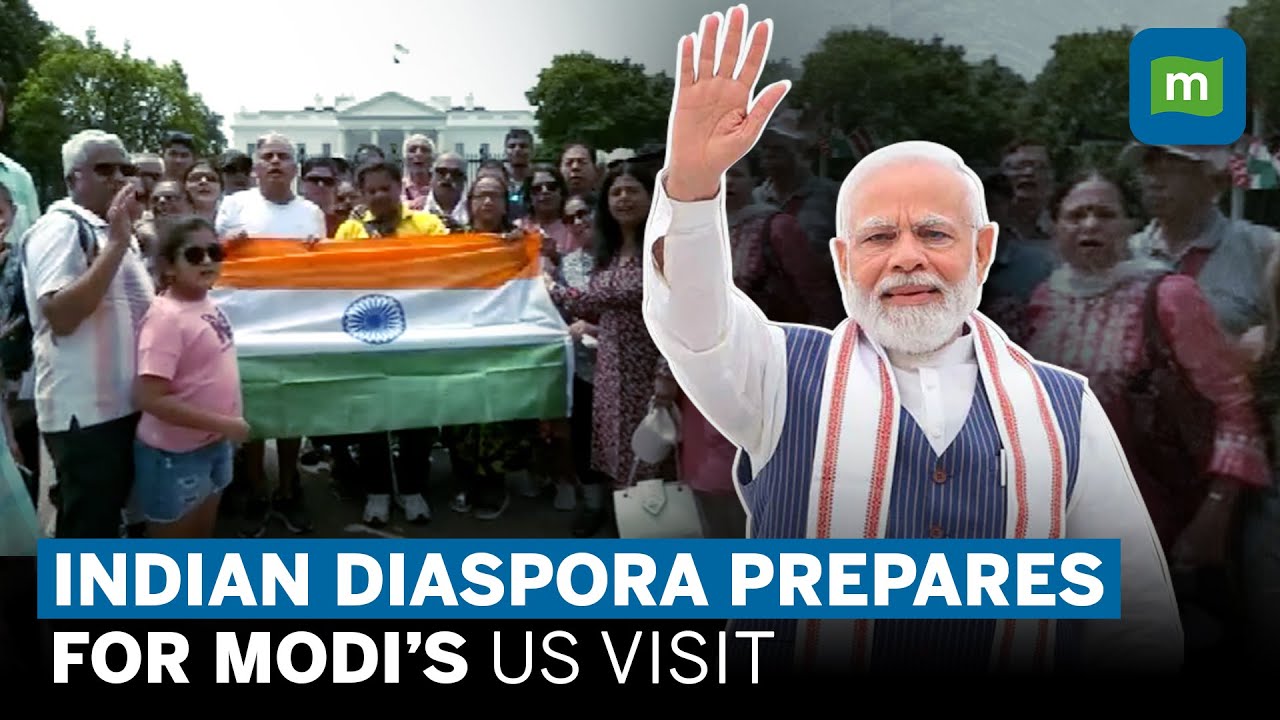
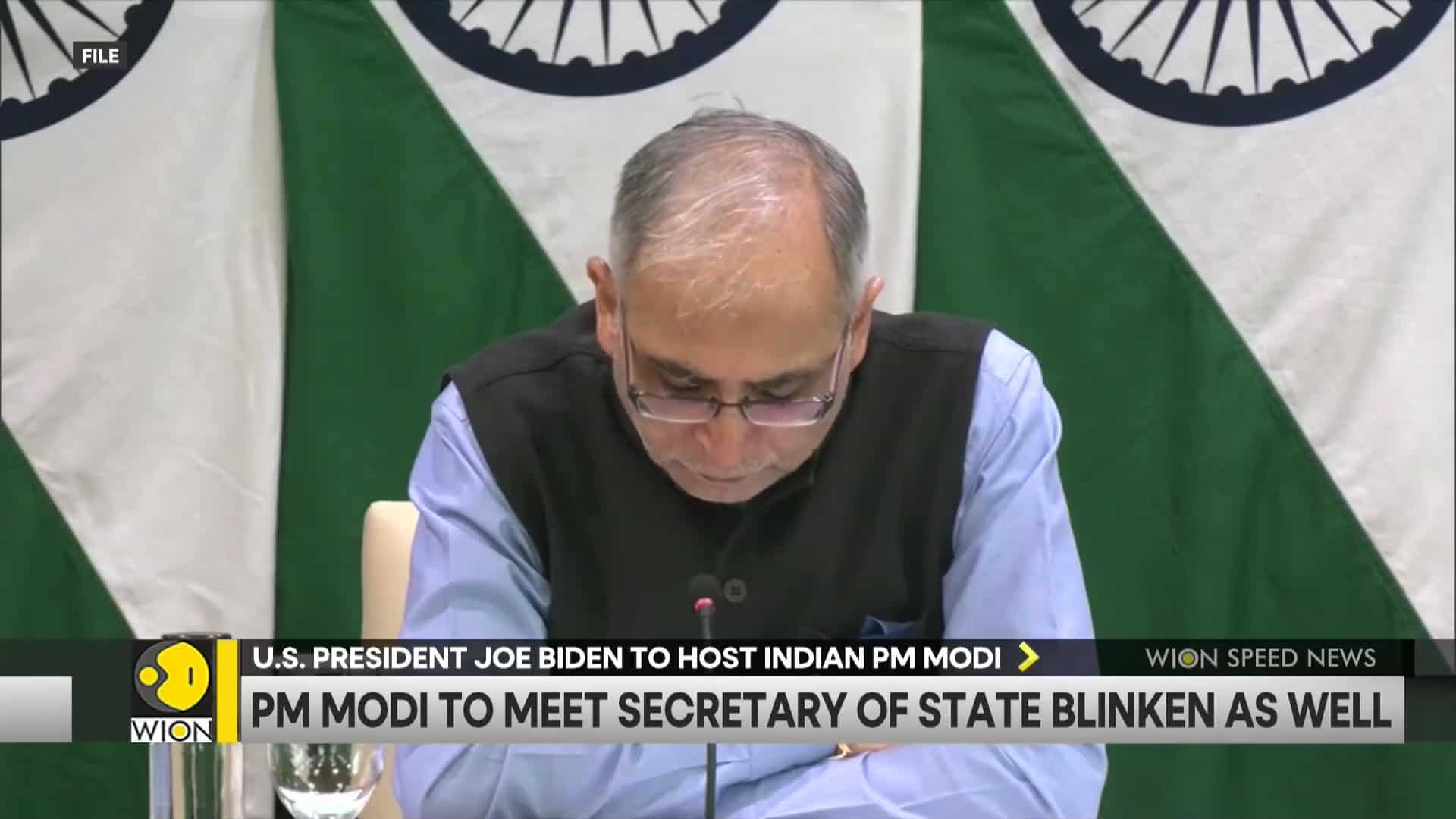
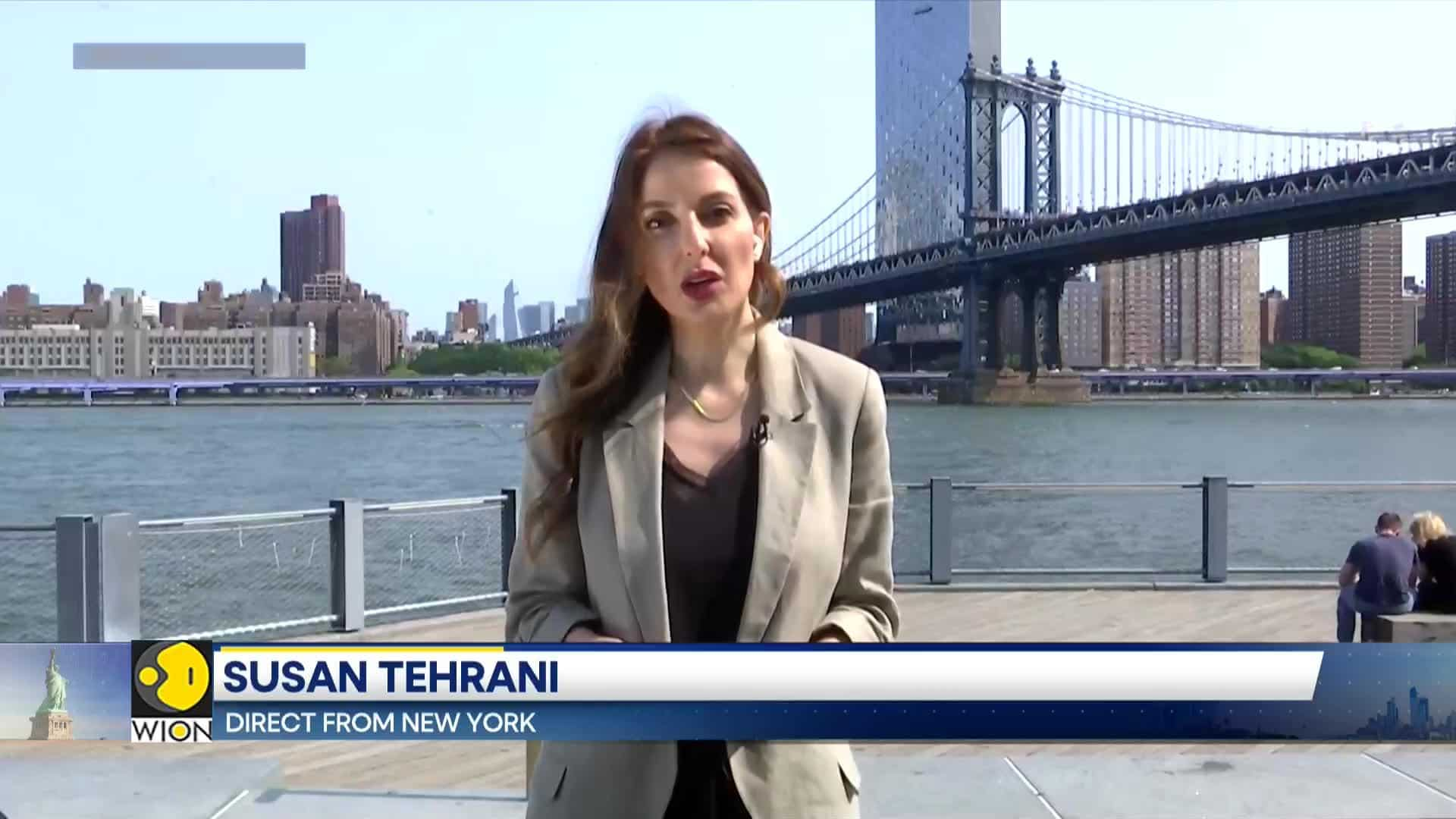

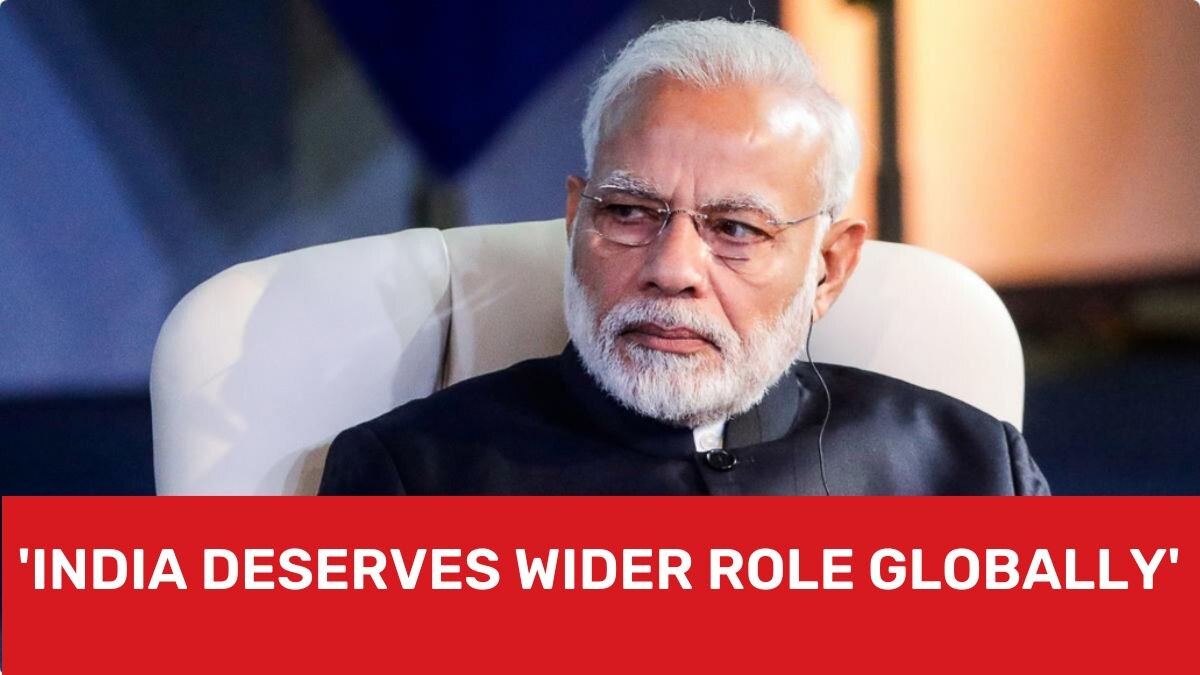

No comments:
Post a Comment